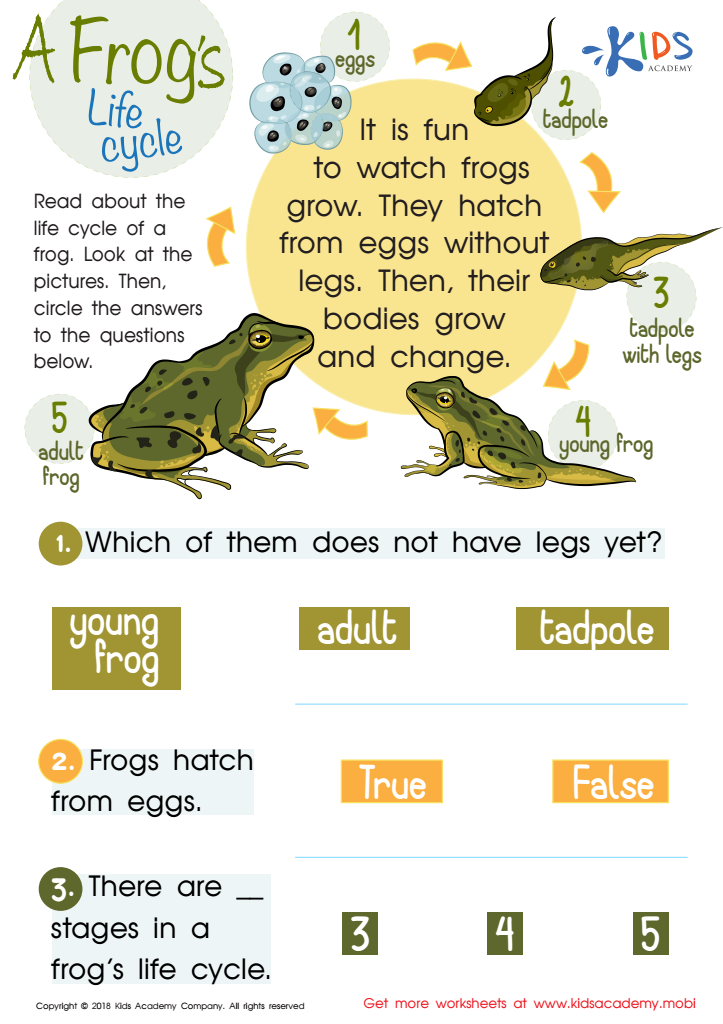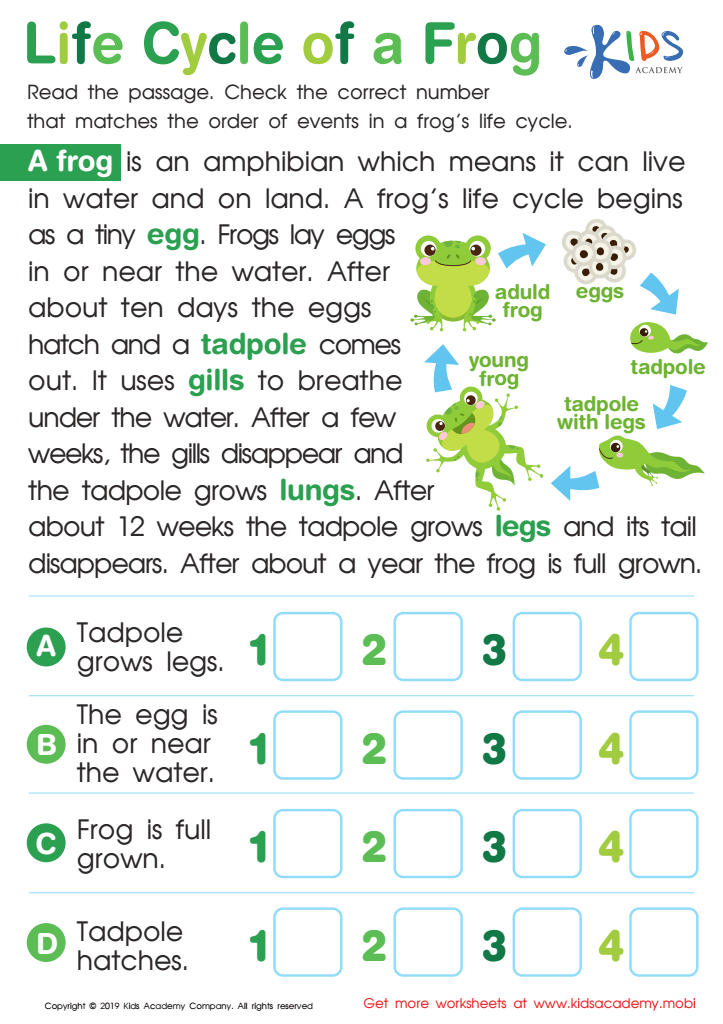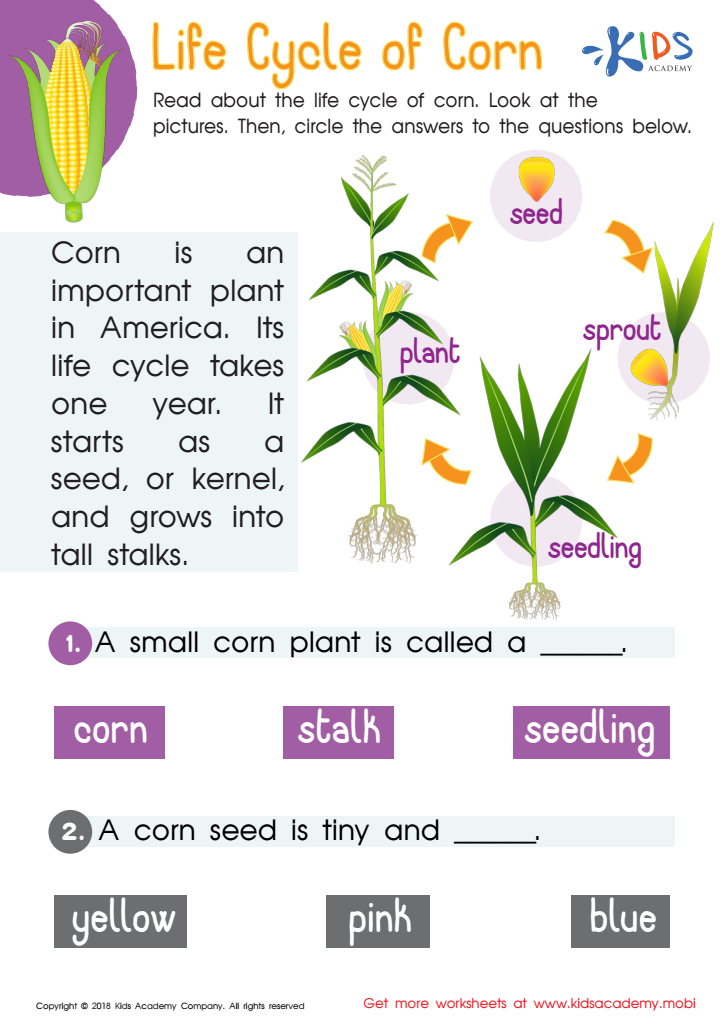Understanding life cycles Easy Reading Non-Fiction Worksheets for Ages 6-7
3 filtered results
-
From - To
Explore the fascinating world of life cycles with our "Understanding Life Cycles Easy Reading Non-Fiction Worksheets" designed specifically for ages 6-7! These engaging, age-appropriate worksheets make learning about nature both fun and informative. Featuring simple texts, vivid illustrations, and interactive activities, young learners will discover the stages of growth in plants and animals, from egg to adult. Each worksheet promotes essential reading skills and critical thinking while encouraging curiosity about life processes. Perfect for classroom use or home learning, these resources foster a love for nature and science. Join us on an exciting journey through life cycles today!


A Frog’s Life Cycle Worksheet


Life Cycle of a Frog Worksheet


Life Cycle of Corn Worksheet
Parents and teachers should prioritize understanding life cycles for children aged 6-7 because it lays a crucial foundation for scientific literacy and curiosity. At this age, children are naturally inquisitive, and learning about life cycles helps them explore how living things grow and change. Understanding the stages of life—such as from egg to tadpole to frog or seed to plant—instills a sense of wonder about nature.
Moreover, comprehension of life cycles connects to broader educational themes, including ecosystems, conservation, and biological diversity. This knowledge fosters environmental stewardship, teaching young learners to appreciate and care for their surroundings.
Additionally, non-fiction texts with engaging visuals make complex concepts accessible and engaging. Such books enhance reading skills and vocabulary while allowing children to draw connections between their lives and the natural world.
Encouraging discussions about life cycles helps develop critical thinking and observation skills as children learn to ask questions and seek answers about the world around them. Ultimately, understanding life cycles prepares young learners to become informed, curious, and responsible individuals who value science and nature.
 Assign to My Students
Assign to My Students















